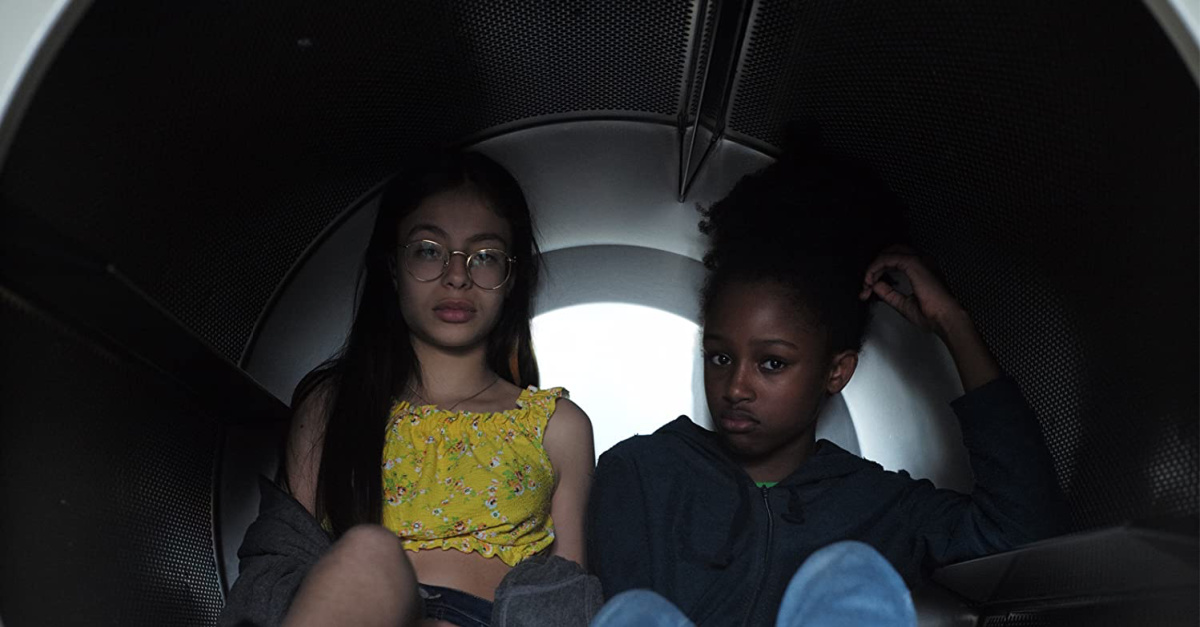Why We Need to Turn Off Cuties and 'WAP' Now

Upon its release in 2005, Reviving Ophelia: Saving the Selves of Adolescent Girls was a New York Times bestseller. It dealt with the clinical challenges of raising healthy adolescent girls at the time. The book’s goal was female empowerment, and it was aptly named after the character Ophelia in Shakespeare’s Hamlet—a young girl who drowned herself because Hamlet didn’t love her.
As I survey the landscape of adolescence 15 years later as a female pastor, I see young girls needing empowerment, too. The Sundance Film Cuties has created such backlash that the hashtag #BanNetflix recently went viral.
This Netflix-streamable, French film features underage girls engaging in lewd behavior. Its director, Maïmouna Doucouré, rightly argues that Western females are being oppressed through their hyper-sexualization in culture.
The issue is that her film contributes to the problem, not the solution.
Further, the problem is spilling over into other forms of media too, like the trending pop song “WAP.”
What Is Sexualization?
The sexualization of women in culture is documented. The American Psychological Association (APA) formed a specific task force to define and research it. They concluded that the following four conditions are examples of sexualization:
- A person’s value comes only from his or her sexual appeal or behavior, to the exclusion of other characteristics;
- A person is held to a standard that equates physical attractiveness (narrowly defined) with being sexy;
- A person is sexually objectified—that is, made into a thing for others’ sexual use, rather than seen as a person with the capacity for independent action and decision making; and/or
- Sexuality is inappropriately imposed upon a person.
Any one condition indicates sexualization, though more may be present. The latter is especially relevant to children, because when children are imbued with adult sexuality, it is often imposed rather than chosen by them.
The controversial film Cuties and the megahit pop song “WAP” are blatant examples of culture’s widespread sexualization. Whn I first learned of the movie and song, I had a range of emotions from outrage to discouragement. I started to research. I interviewed two guests on my show who are authors of a new devotional for tween girls. I messaged with a seminary friend, who has a ministry aimed at safeguarding the healthy development of girls.
As I thought critically about my faith, I came to the following conclusion: Turn the movie and the song off, and speak out.

Cuties Supports What It Condemns
While it appears that the intention of Cuties is to decry the sexualization of young girls—whose characters are a mere 11 years old—the film falls short. According to the Washington Post, the film “…has been described variously as a touching coming-of-age story and also kiddie porn unfit for decent society. It’s something in between: a movie intended to condemn the sexualization of children that tips over into doing the thing it deplores to its child stars.”
Its child stars watch porn, mimic it, and perform suggestive dances in minimal clothing. One actress blows up a condom as a balloon.
Some have argued that one cannot be opposed to the film’s airing if one has not seen it first. Those who have seen it unanimously label it as difficult to watch.
The Problem with Watching it Is Two-Fold
First, seeing it arguably makes its audience less sensitized. Modern-day art draws its power from shock-value—therefore, it takes more and more to shock us.
I never want to be desensitized to this kind of material.
Choosing to protect our mind and imagination is a legitimate right, not a crime. What is a crime is what’s being featured on camera and propagated by culture. The Bible teaches us to guard our mind (Philippians 4:8), which allows our discernment to remain sharp and attentive.
Second, I do not need to see young girls being hyper-sexualized to believe it’s wrong. Oppressing the film’s own stars to tell the story by chipping away at their innocence and disrespecting the sacredness of their bodies does not help females.
Further, some viewers will inevitably use the suggestive, underage close-ups to feed their unhealthy desires.
It is possible to stand against something without feeding it and (conveniently) benefiting from it. Jesus warns us to look at the fruit of a trajectory to surmise its legitimacy (Matthew 7:15–20).
The Danger of “WAP’s” Vulgarity
The fruit of “WAP” is menacing too. WAP is a profane acronym for female lubrication. It has been on the Billboard Top 100 chart for multiple weeks now, frequenting the #1 spot. In its first week of release, its music video was streamed a record 93 million times in the US alone.
I was first tipped off to its presence by New York Times bestselling parenting author, pediatrician, and researcher Dr. Leonard Sax, who warned about the dangers of its vulgarity for developing girls.
The Dangers of the Song Are Real
Its lyrics normalize sex for money, violent sex, manipulation and sex, and debauchery. The song depicts sex in its weakest form—void of bonding, mutual love, and respect for the sacred nature of our bodies—under the guise of sexual empowerment.
Instead, its self-serving ethic and commercialization of sex will enchain rather than free those who listen and follow.
The APA found that youth receive a prevalent amount of sexualization messages through music. The fact that a song like “WAP” not only exists but is a smash hit is therefore troubling. Defenders have argued that “WAP” is an adult song rather than fit for kids—i.e. parents should tighten their monitoring rather than take issue with the song itself.
I disagree. If we as women do not respect our bodies, who will? If we do not raise our voices in protection of the voiceless or for those whose voices are still forming, who will?
Their Haunting Harm—and How to Redeem It
I could not escape the haunting feeling that this song and film, as well as media and messages like it, will do far more harm than good for women and young girls.
If women are in abusive relationships, then they deserve our help rather than glamorizing the behavior feeding that abuse in song.
If young girls are being trafficked and preyed upon by culture, we need to empower their voices rather than tantalize perpetrators with new on-demand material.
Lives are quite literally at stake by what we choose to support as we listen and watch.
Sexuality is in crisis mode in culture. Human bodies should never be bought or sold for selfish lust, either willingly or unwillingly. The Bible affirms the sacred nature of our bodies, describing them as temples of the Holy Spirit (1 Corinthians 6:19) that are made in the image of God (Genesis 5:1-2).
We are more than our physical nature. Likewise, sex is more than a mere physical act. Recognizing and protecting that is true sexual liberation and empowerment.
Photo Credit: ©Netflix/IMDb

Originally published September 30, 2020.




